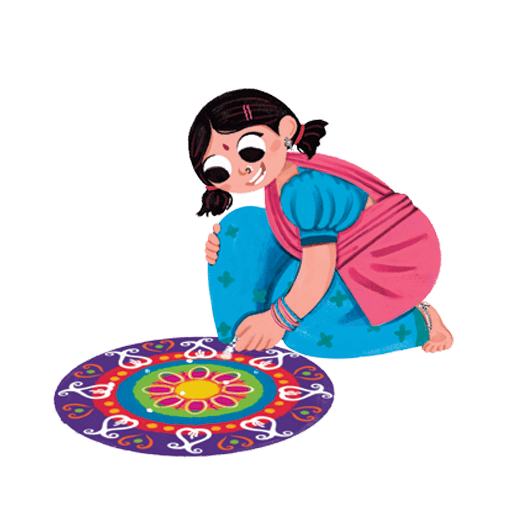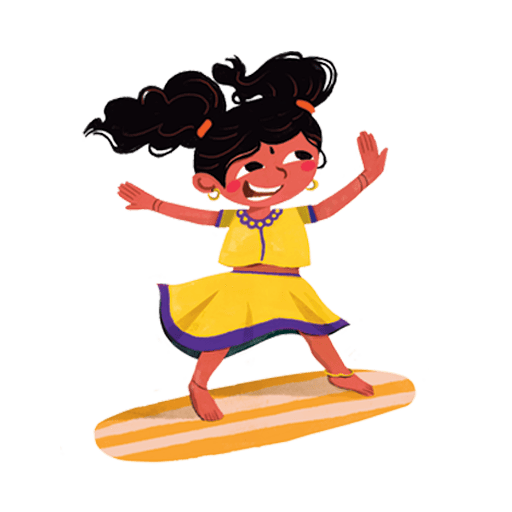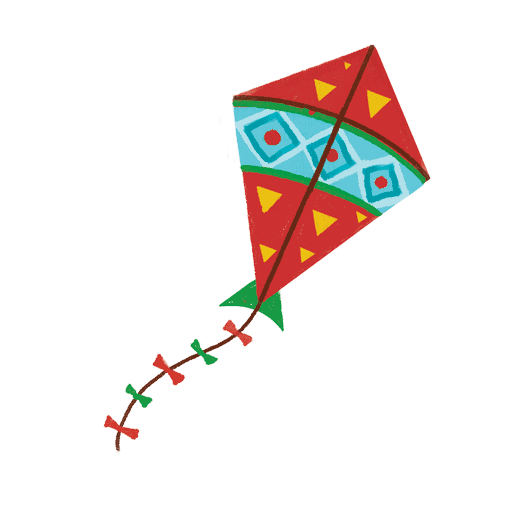The Little Shloka Book ™ series
The Little Shloka Book ™ series is the perfect little introduction to Sanskrit shlokas for kids!
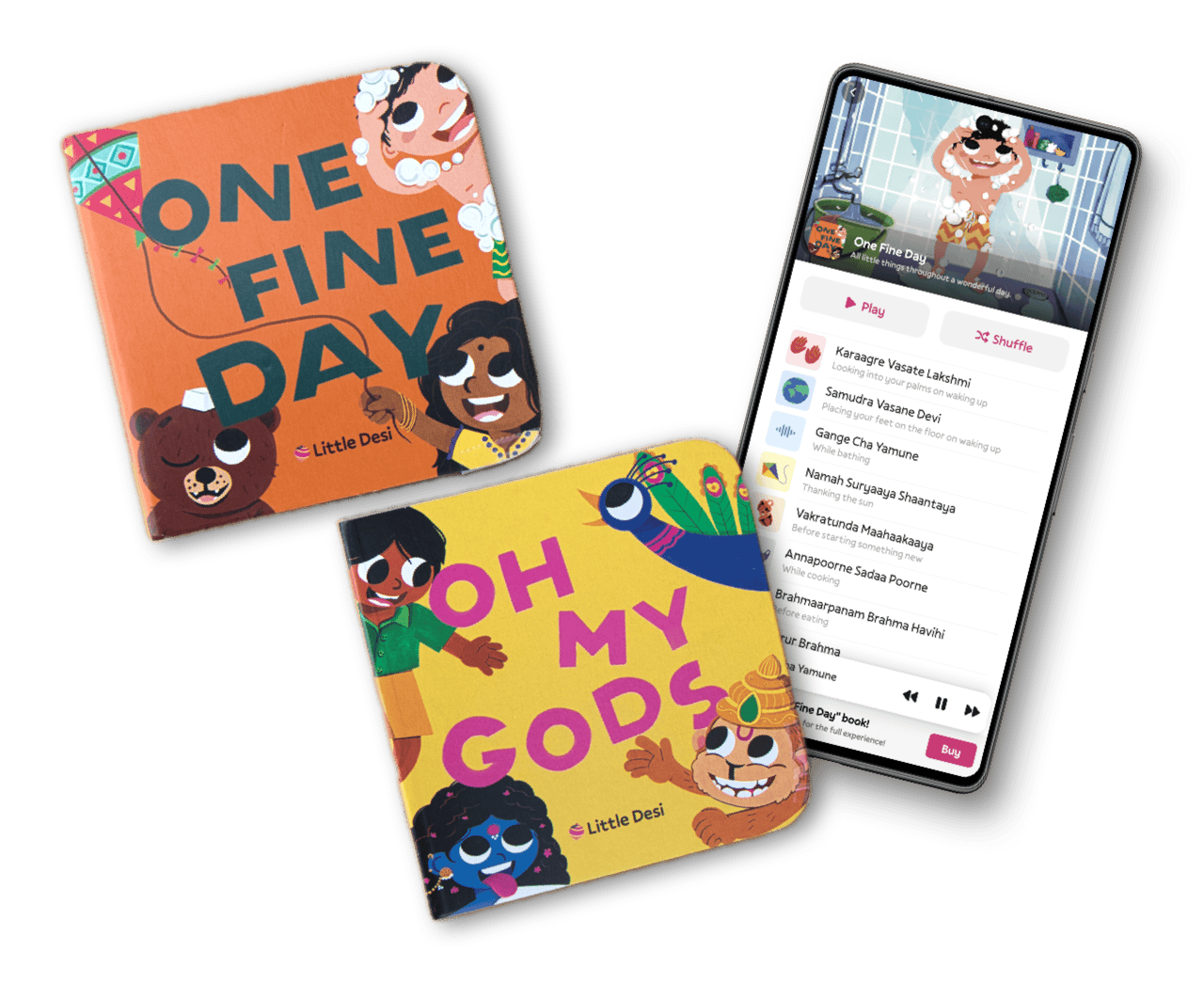
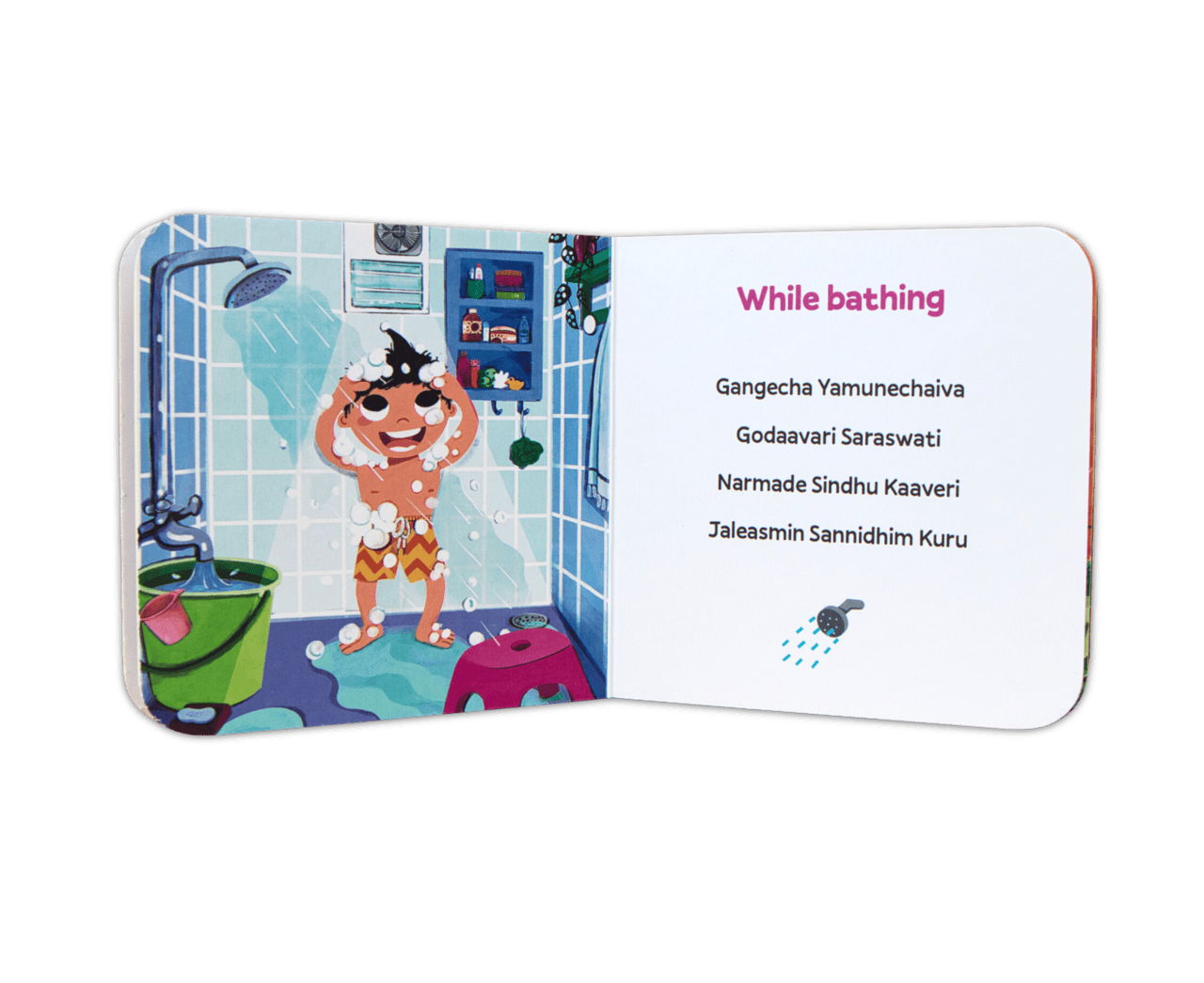
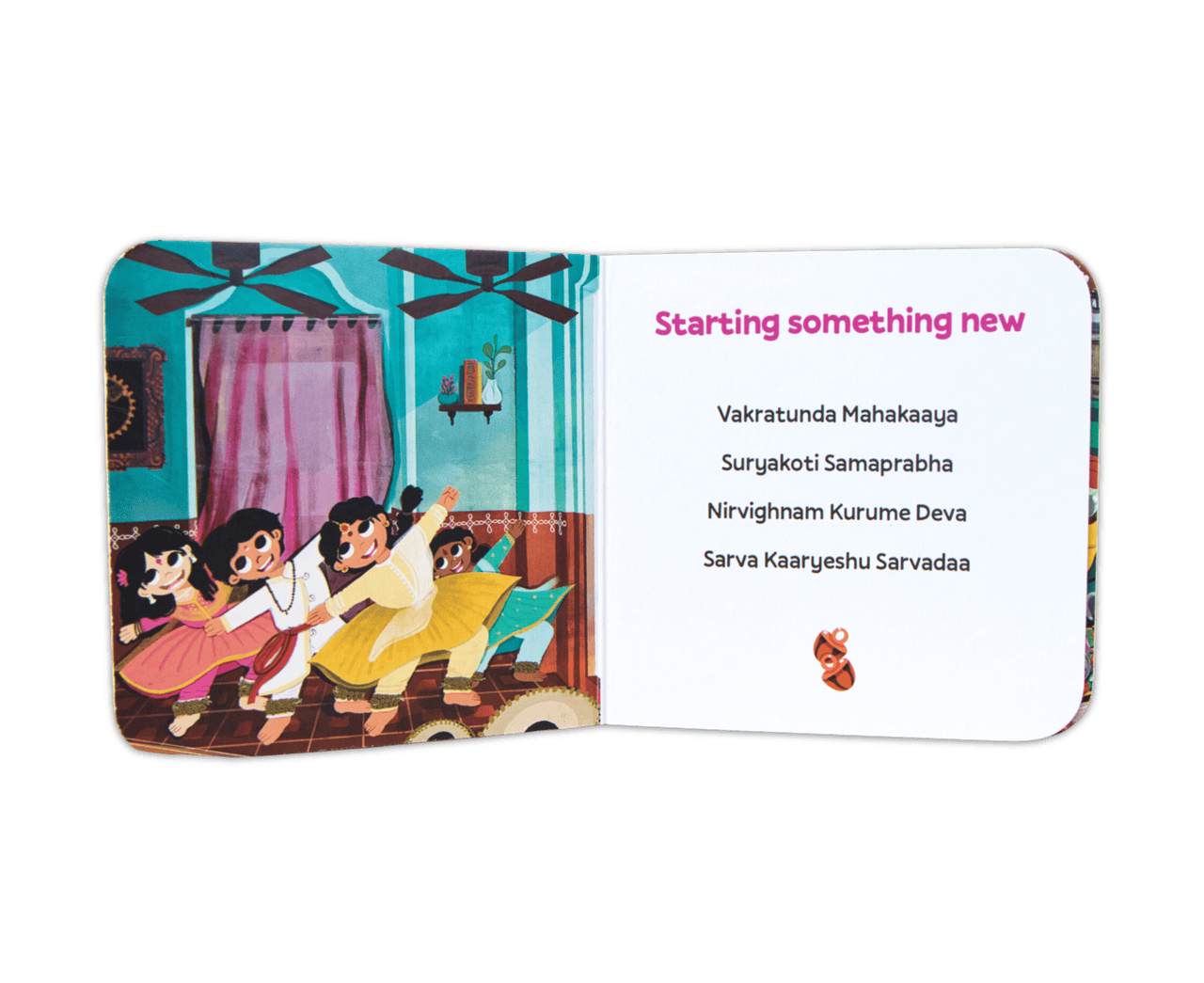

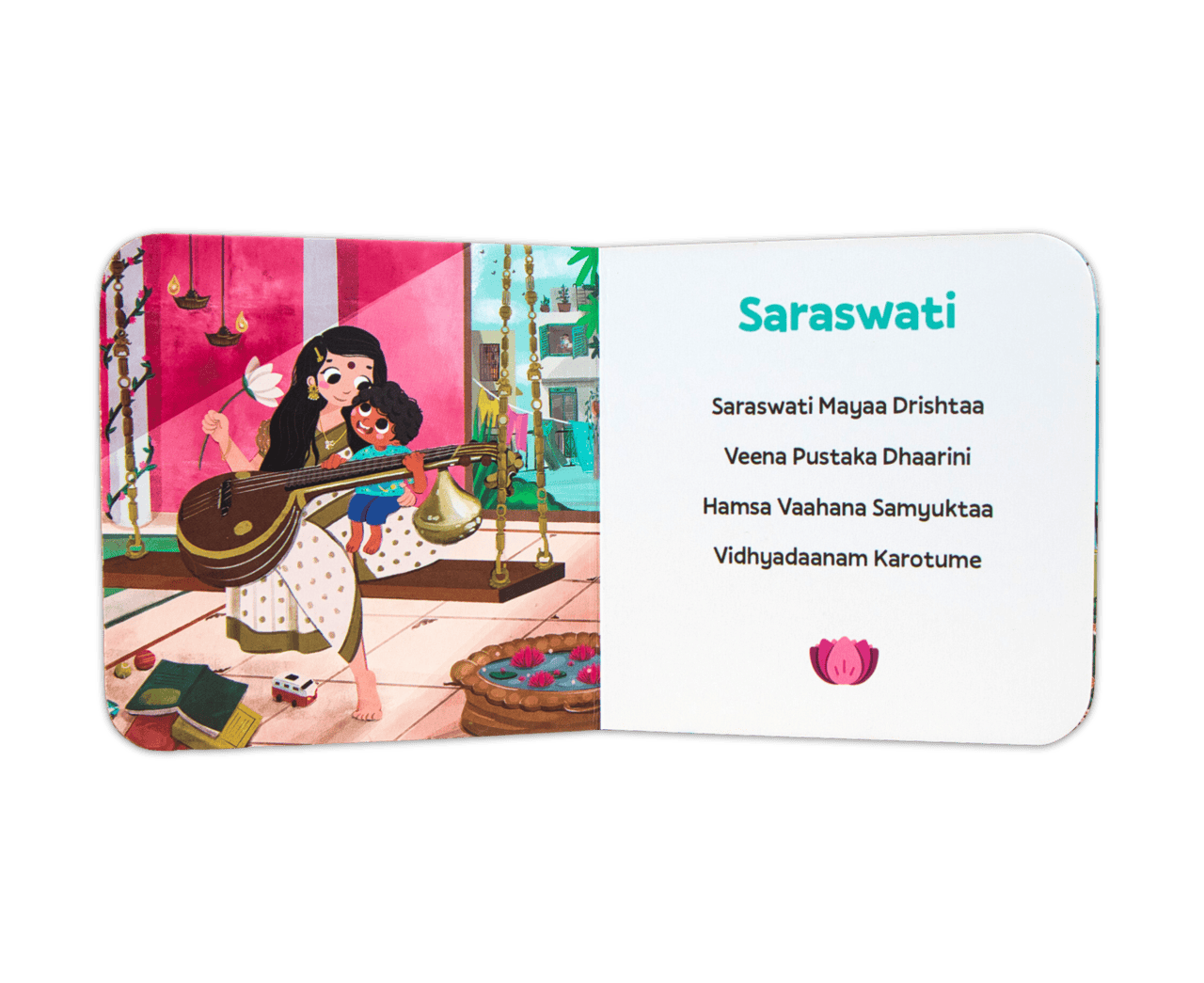
Includes free
The Little Shloka Player ™
companion app
Take a look inside 👀
Watch Priya introduce The Little Shloka Book series!
20,000+ copies sold!
Free shipping included
How do we make today's kids fall in love with Sanskrit shlokas?
Chanting Sanskrit shlokas is a timeless Indian tradition. It can have a profound impact on our mental and emotional well-being. How do we pass it on to our kids?
Step 1: Make it cute
Our books are full of hand-crafted, colourful illustrations as cute as their readers. The scenes are unique and full of surprises. The characters are fun and relatable Indian faces.
Each page is a little story, a little adventure, and a little lesson.
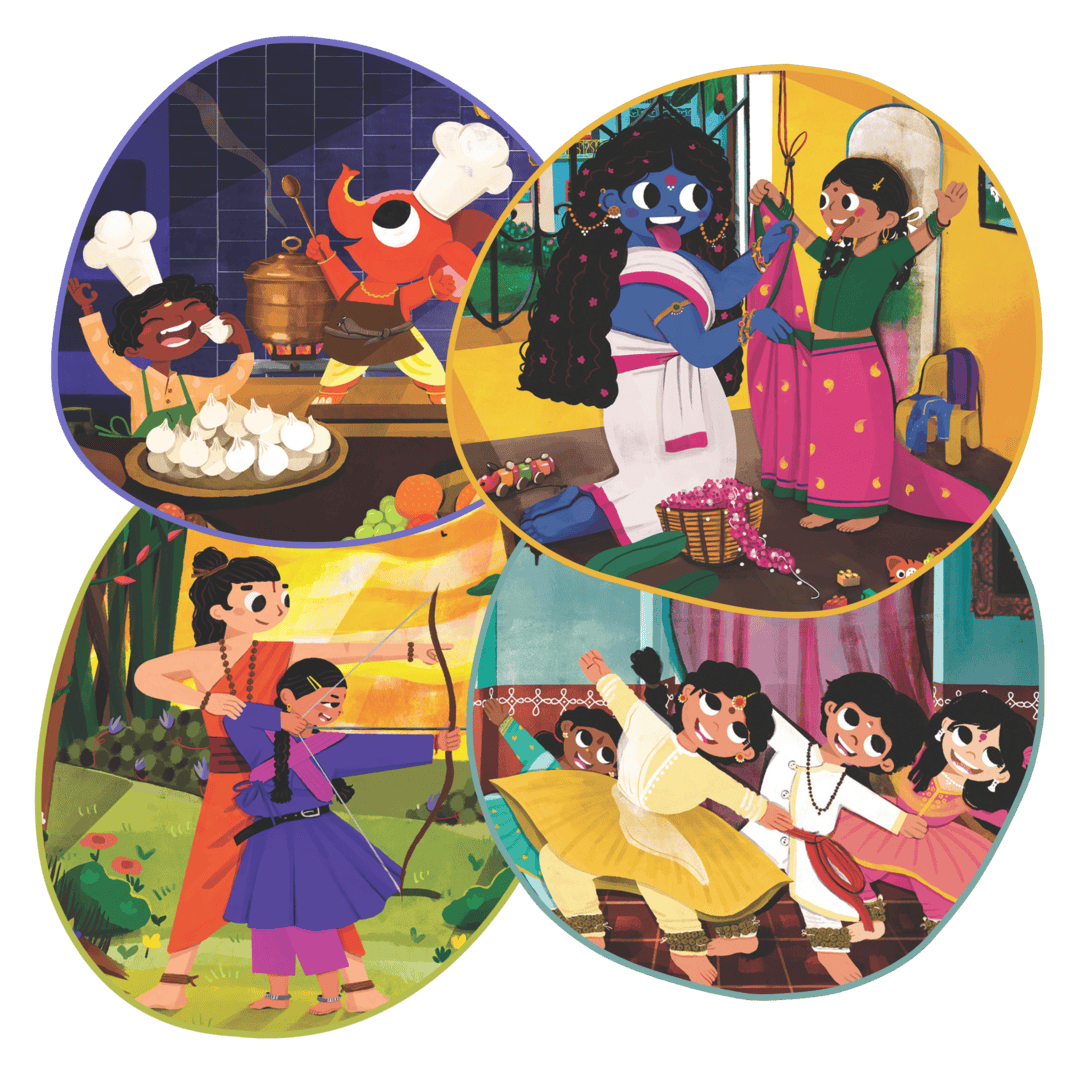
Step 2: Make it play
The Little Shloka Player ™ allows you to listen to the shlokas, perfect your pronuncation, and explore each shloka's meaning. You can even change the language to Sanskrit!
It's the ultimate digital companion to the books, and you get FREE access with every purchase!
Get a sneak peek!
Step 3: Make it fun
Wouldn't it be amazing if there were fun and engaging videos, printables, and quizzes, which used shlokas to dive into mythology, history, science, music, meditation, and art?
The Shlokas Made Fun ™ online course encourages kids to explore the world around them through an Indian lens.
Get a sneak peek!
Learn more about the course ›Choose your shloka adventure!
The Little Shloka Book #1: One Fine Day
Shlokas for all little things throughout a wonderful day.
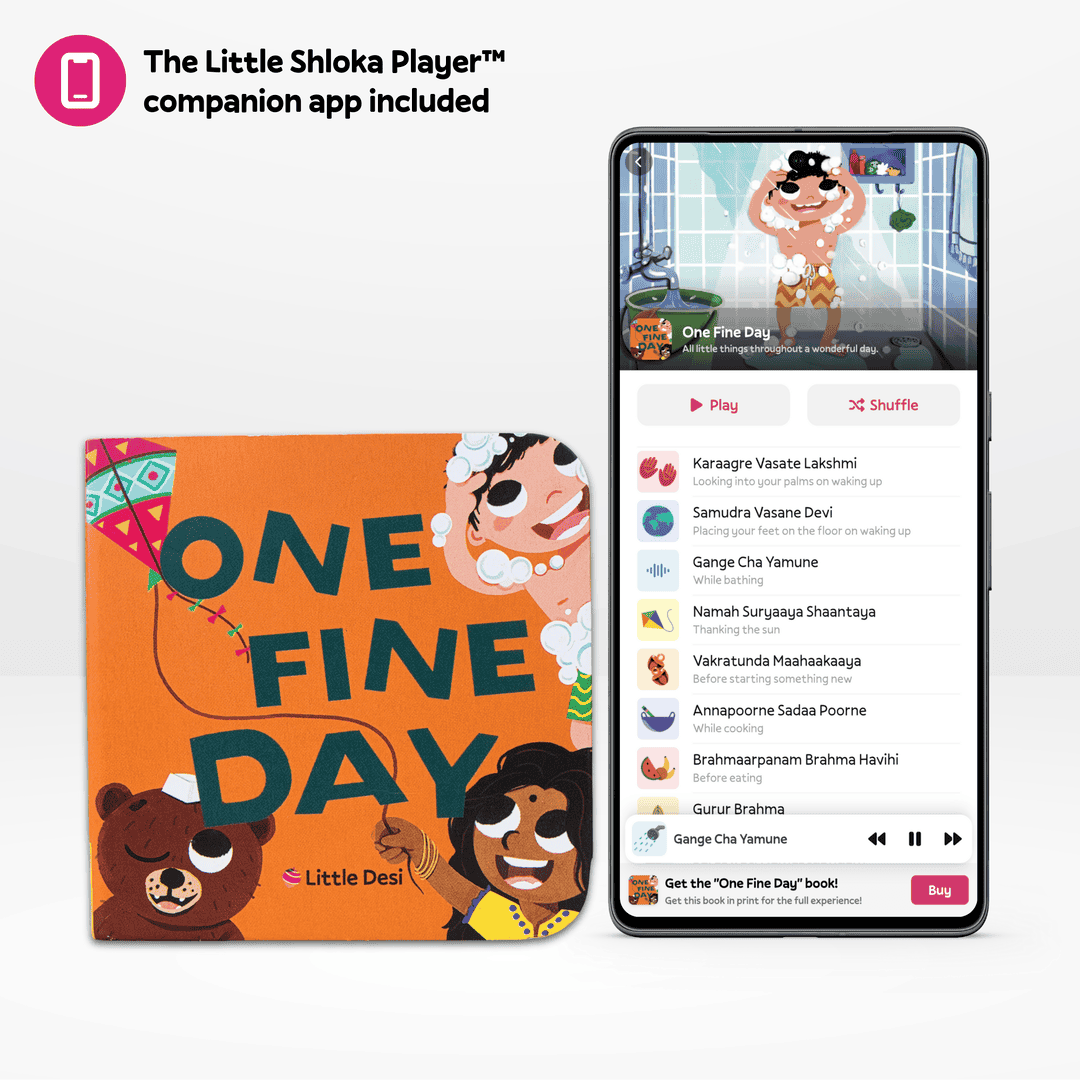
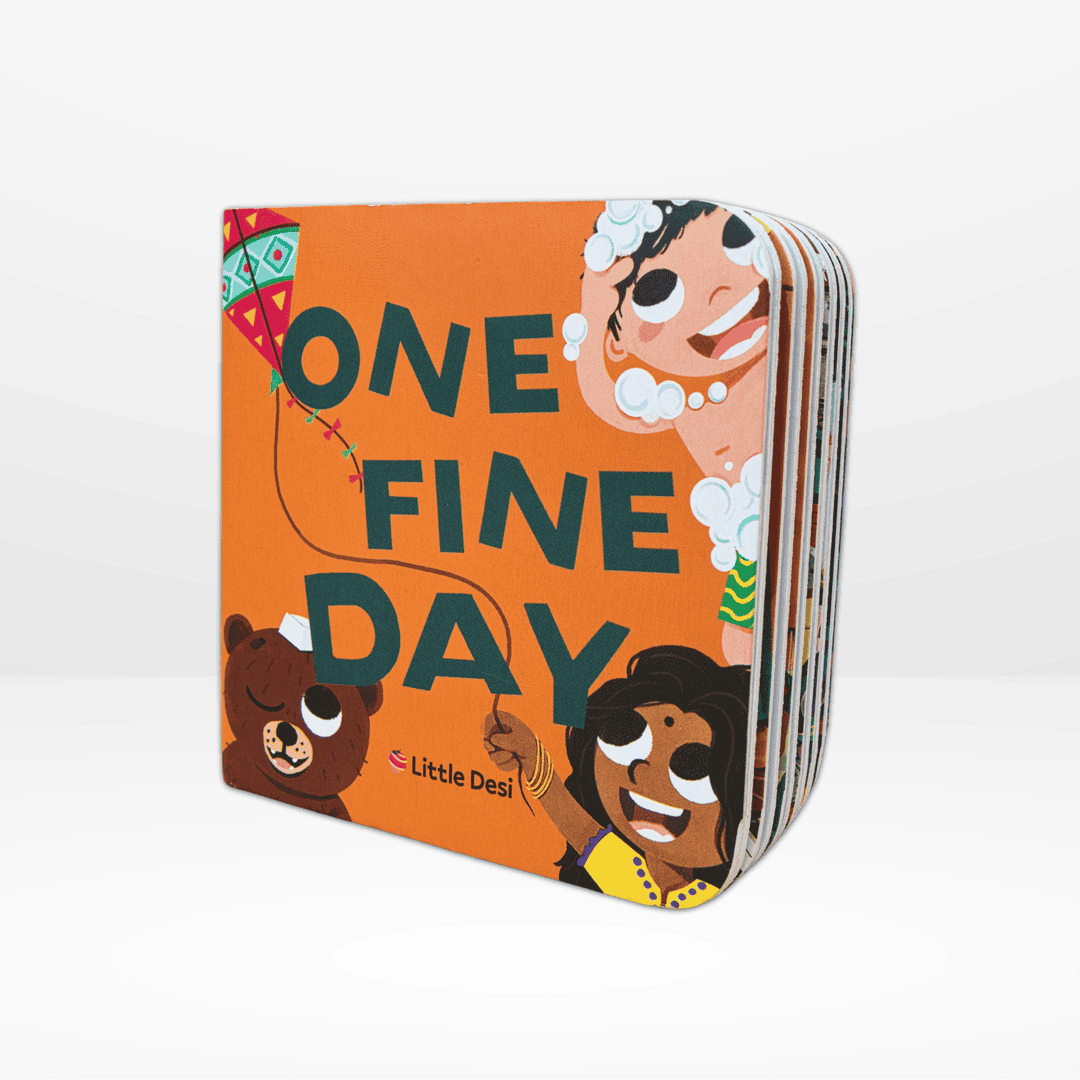
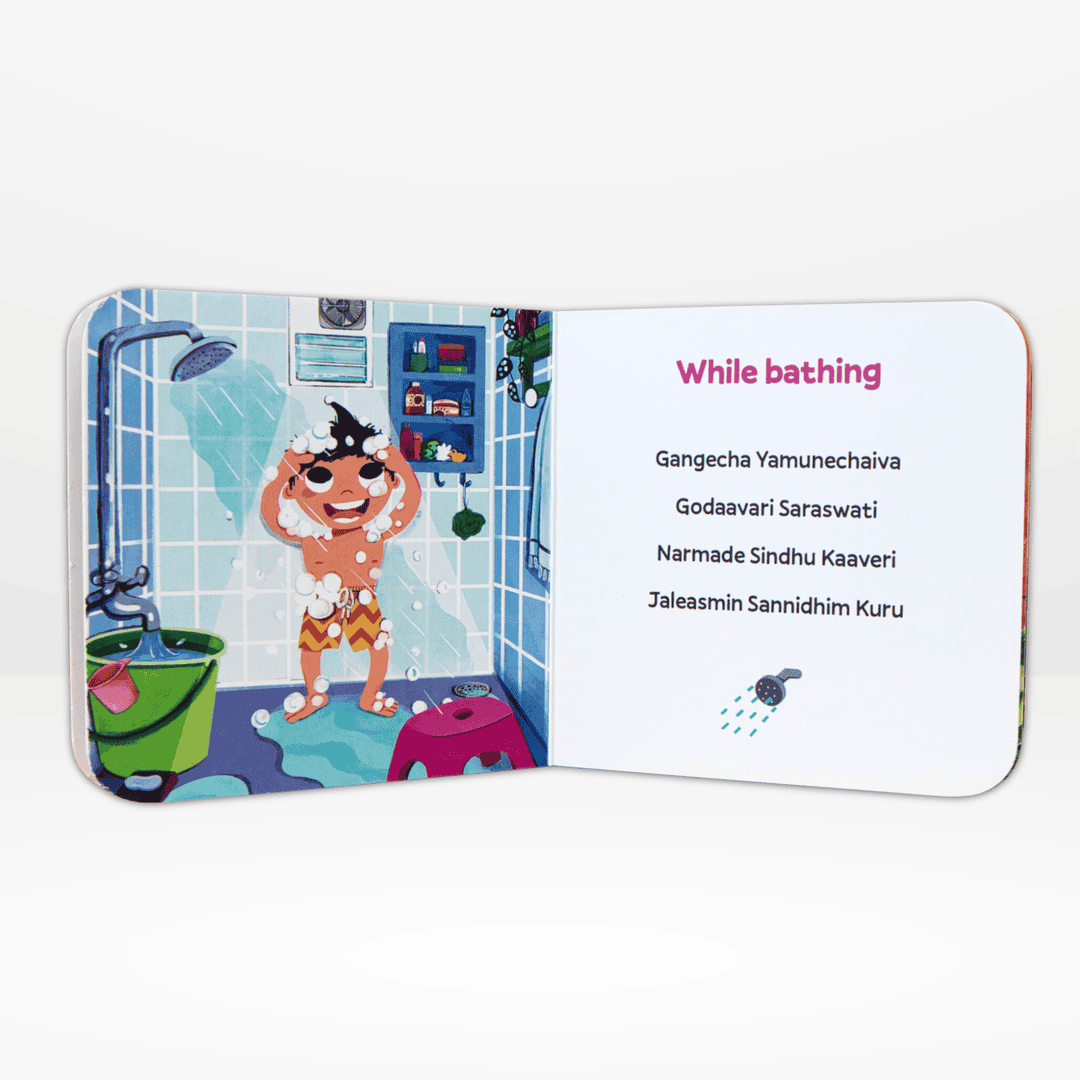
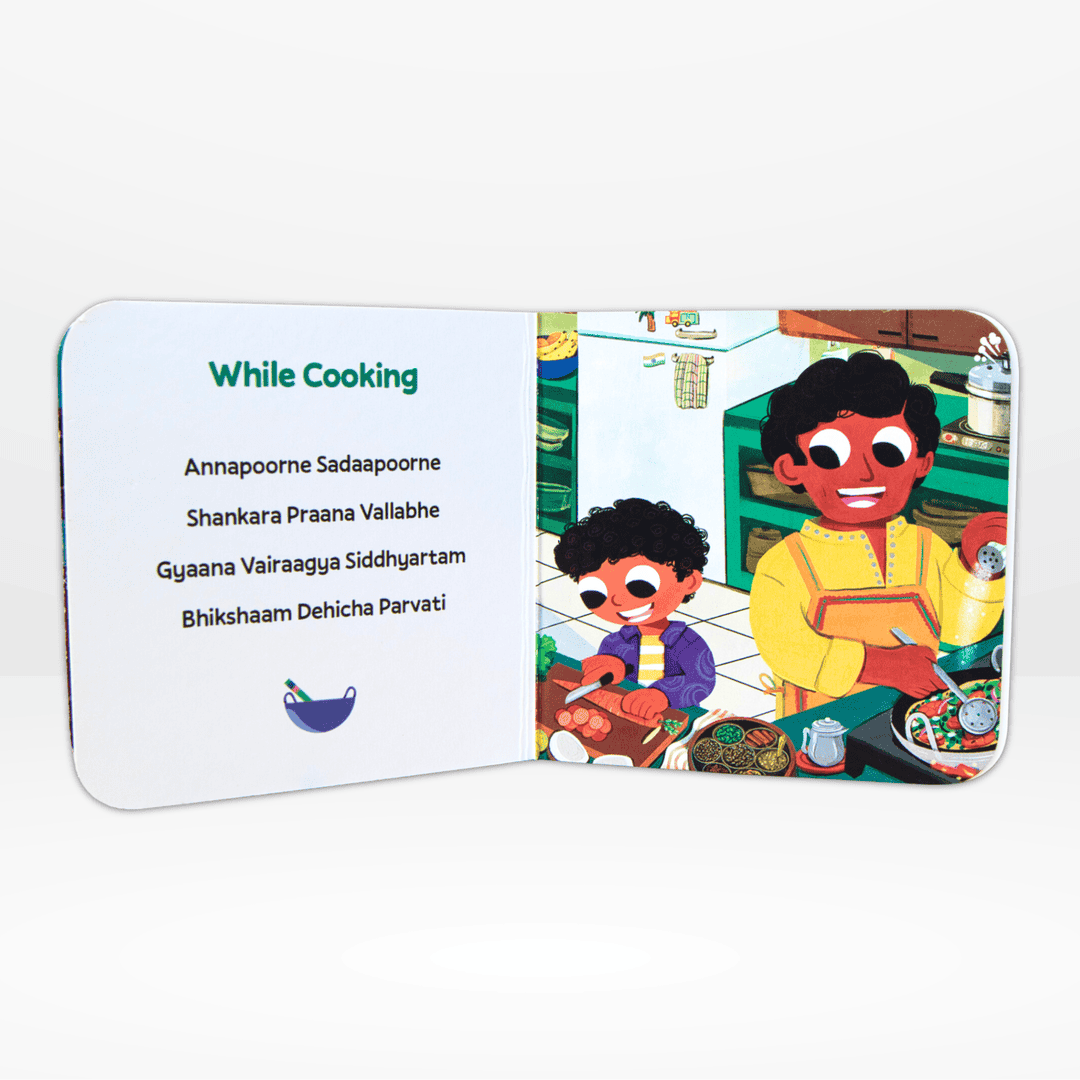
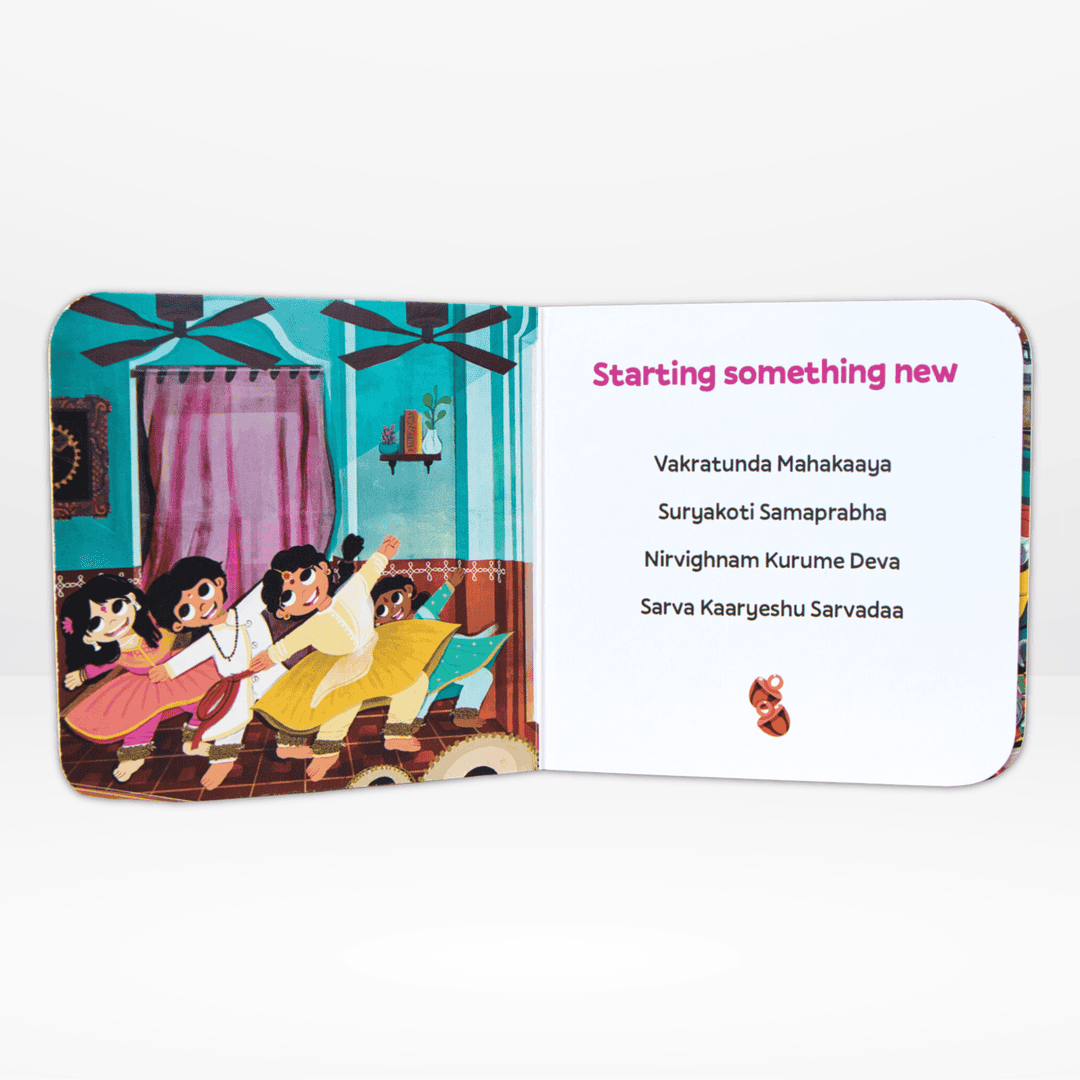
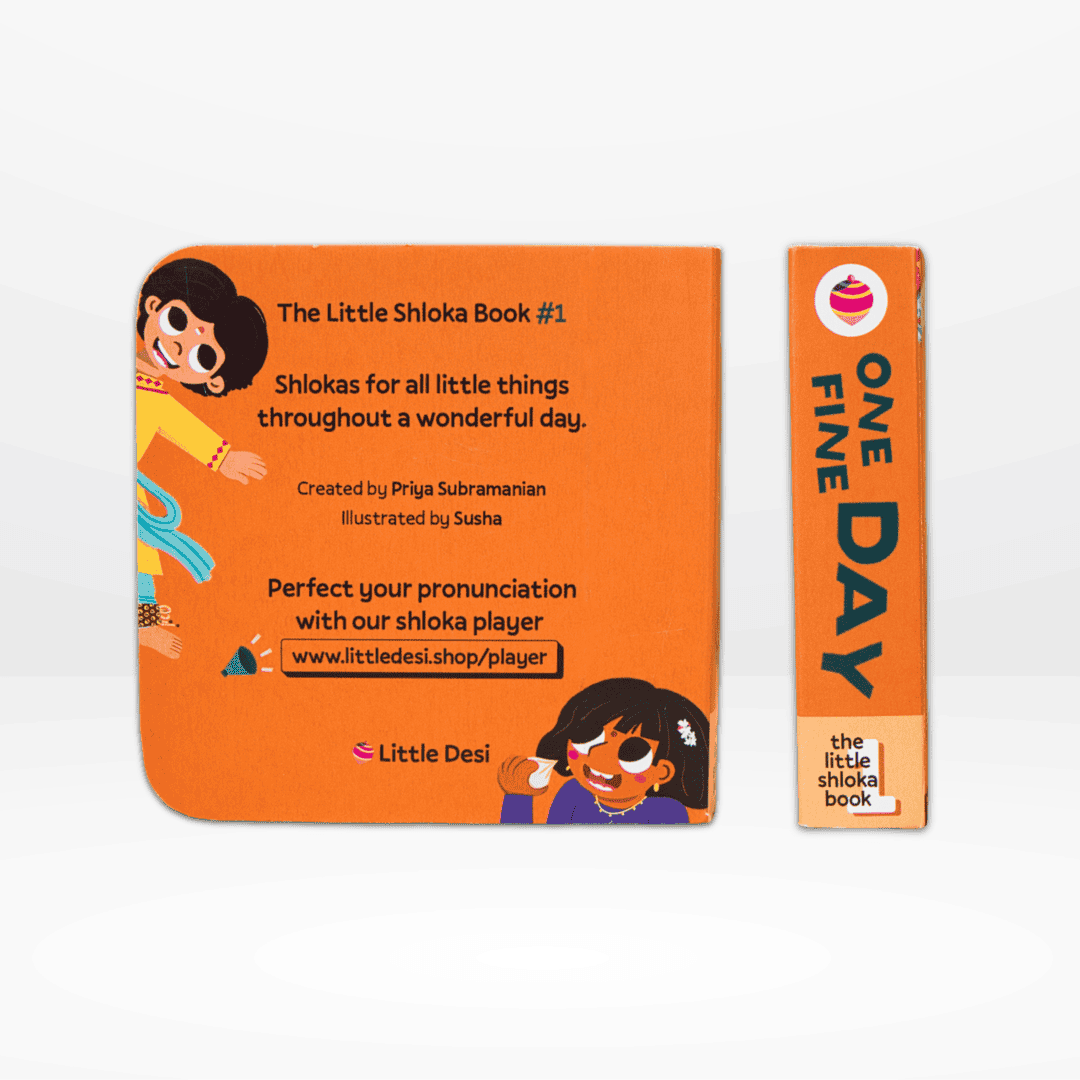
The Little Shloka Book #2: Oh My Gods
Shlokas to befriend your favourite goddesses and gods.
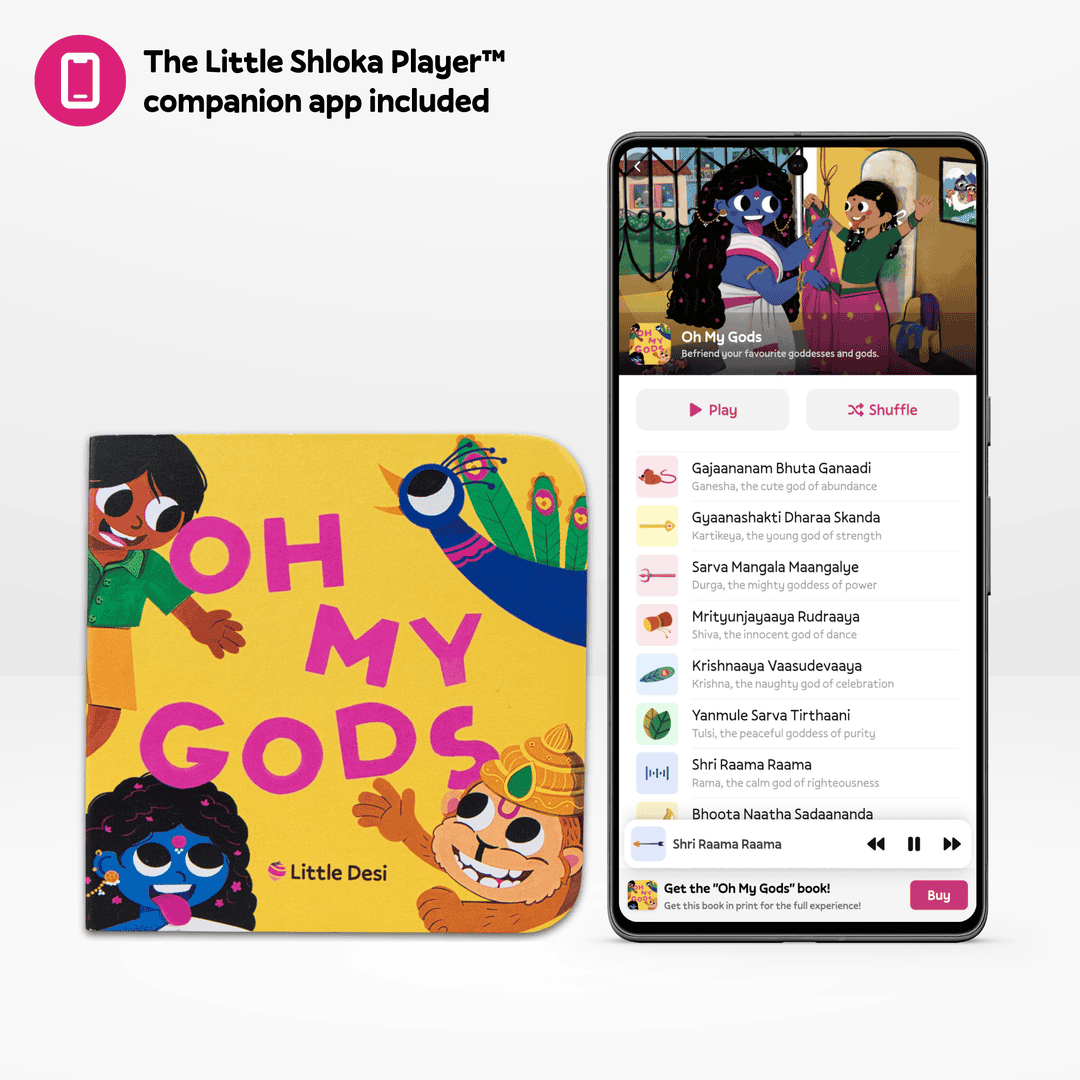
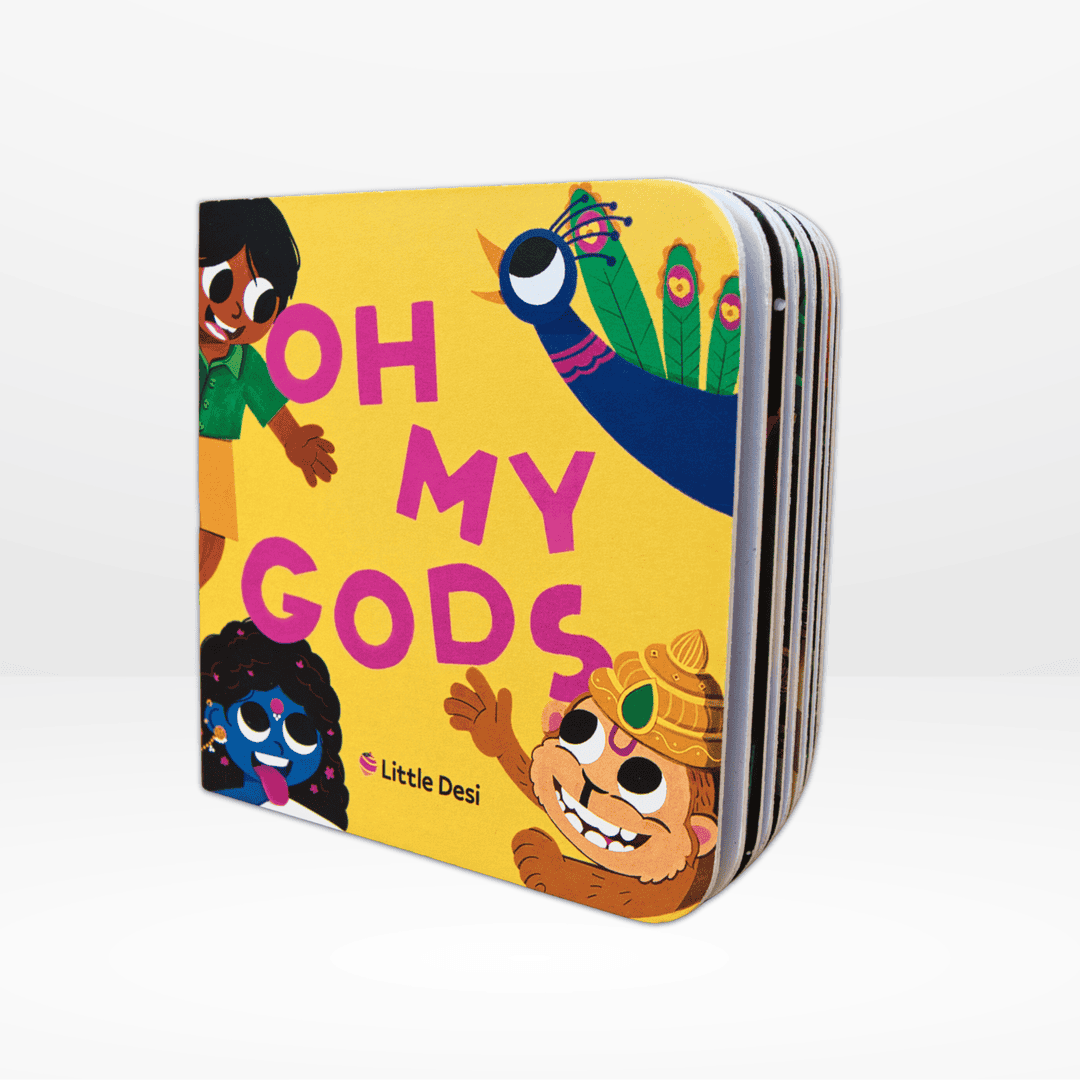
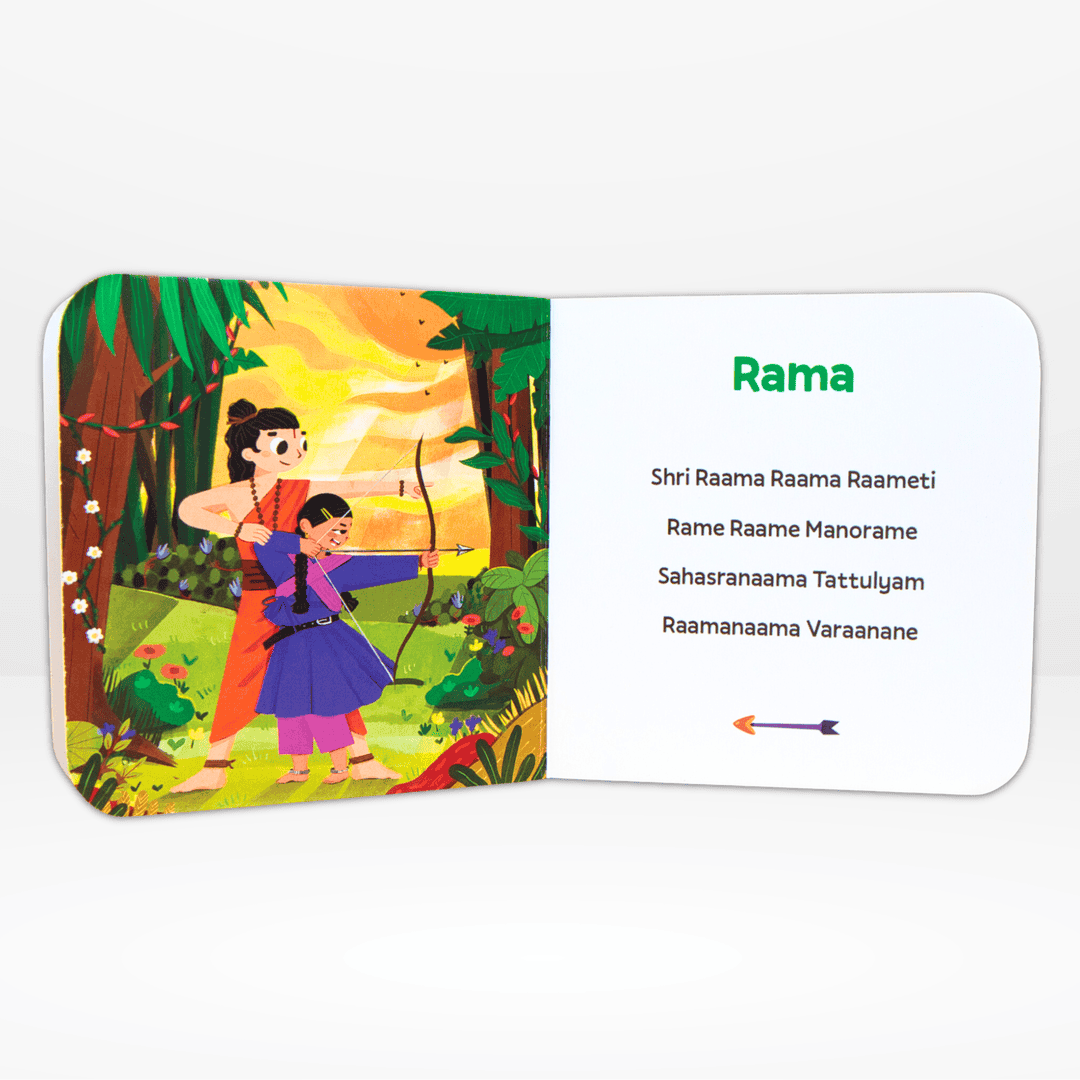
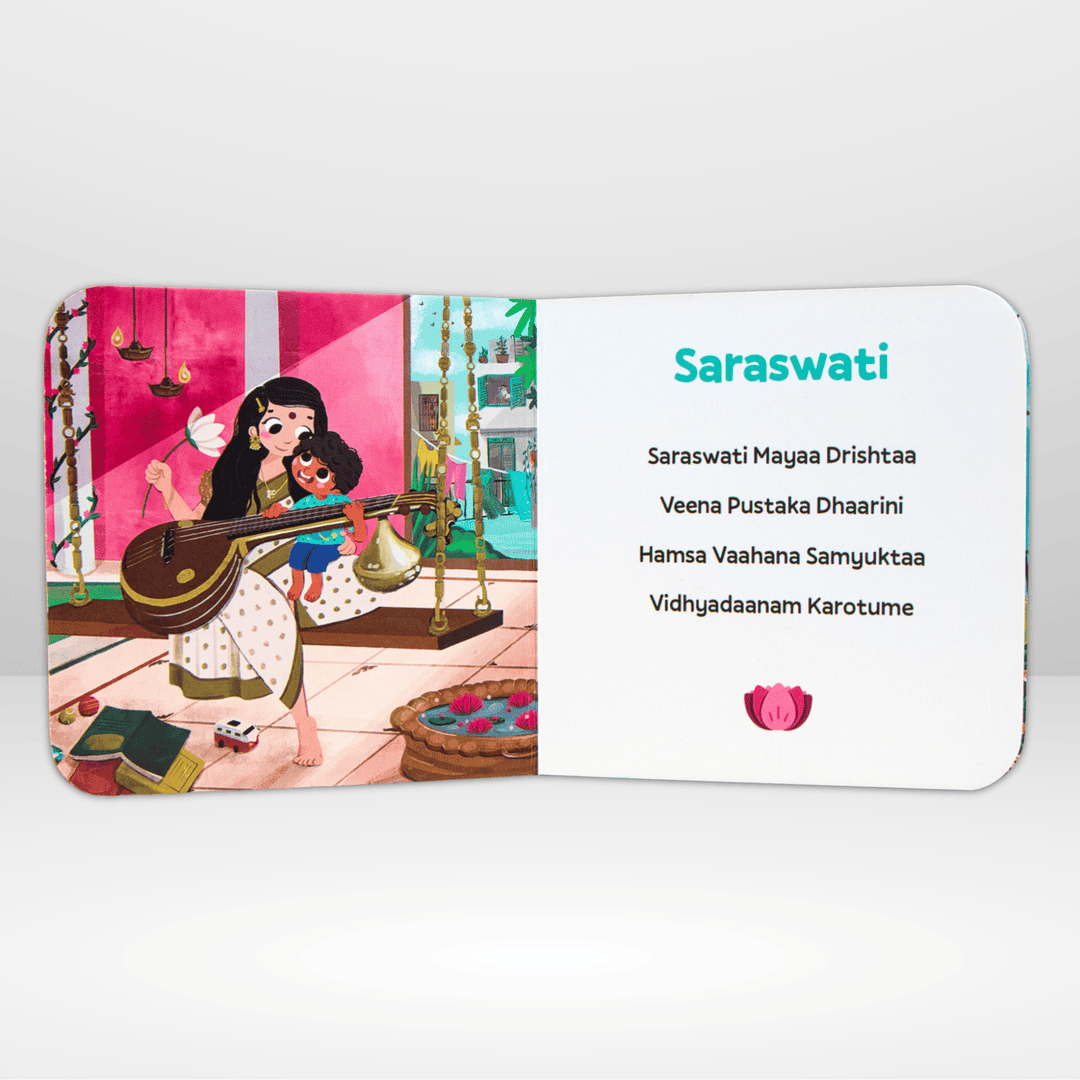
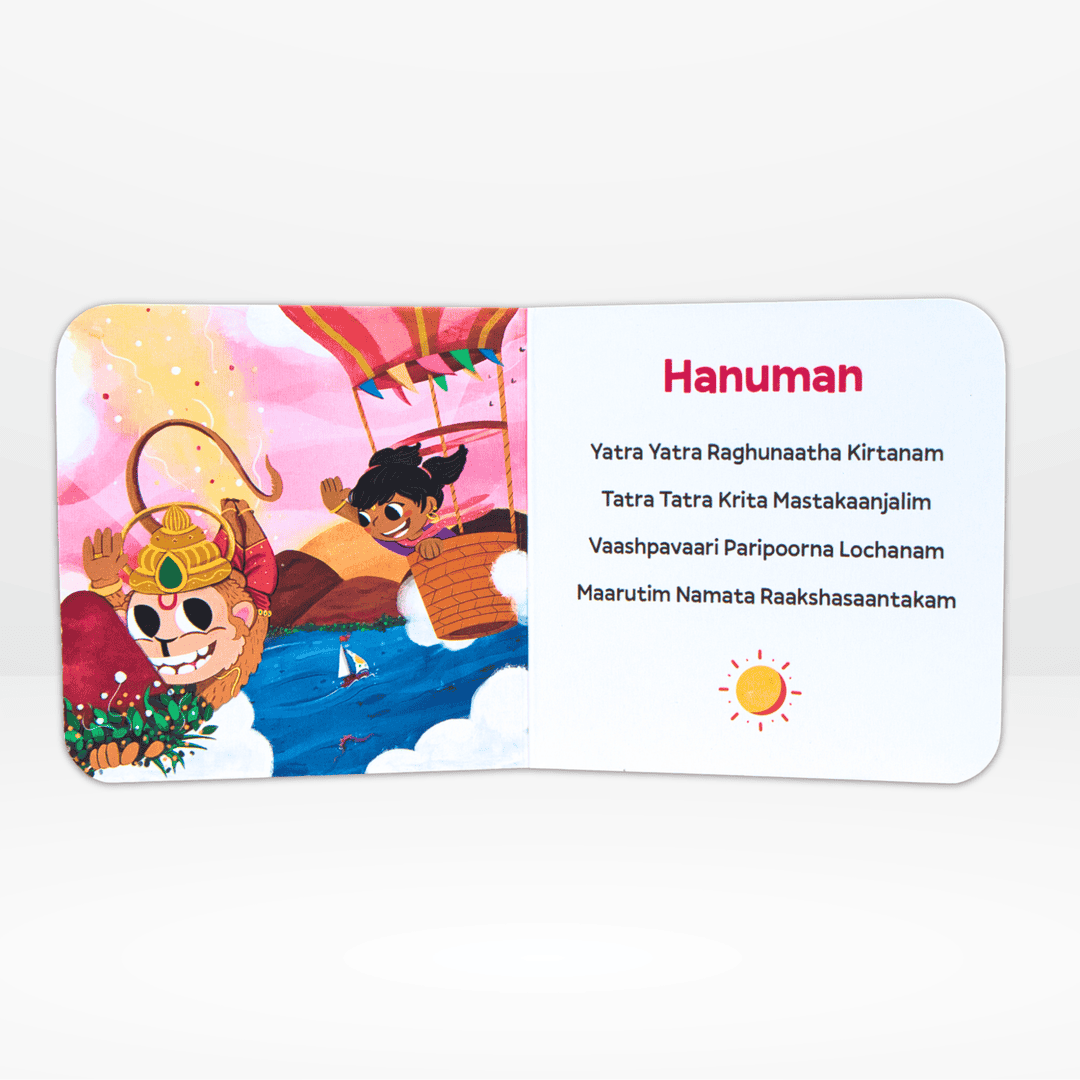
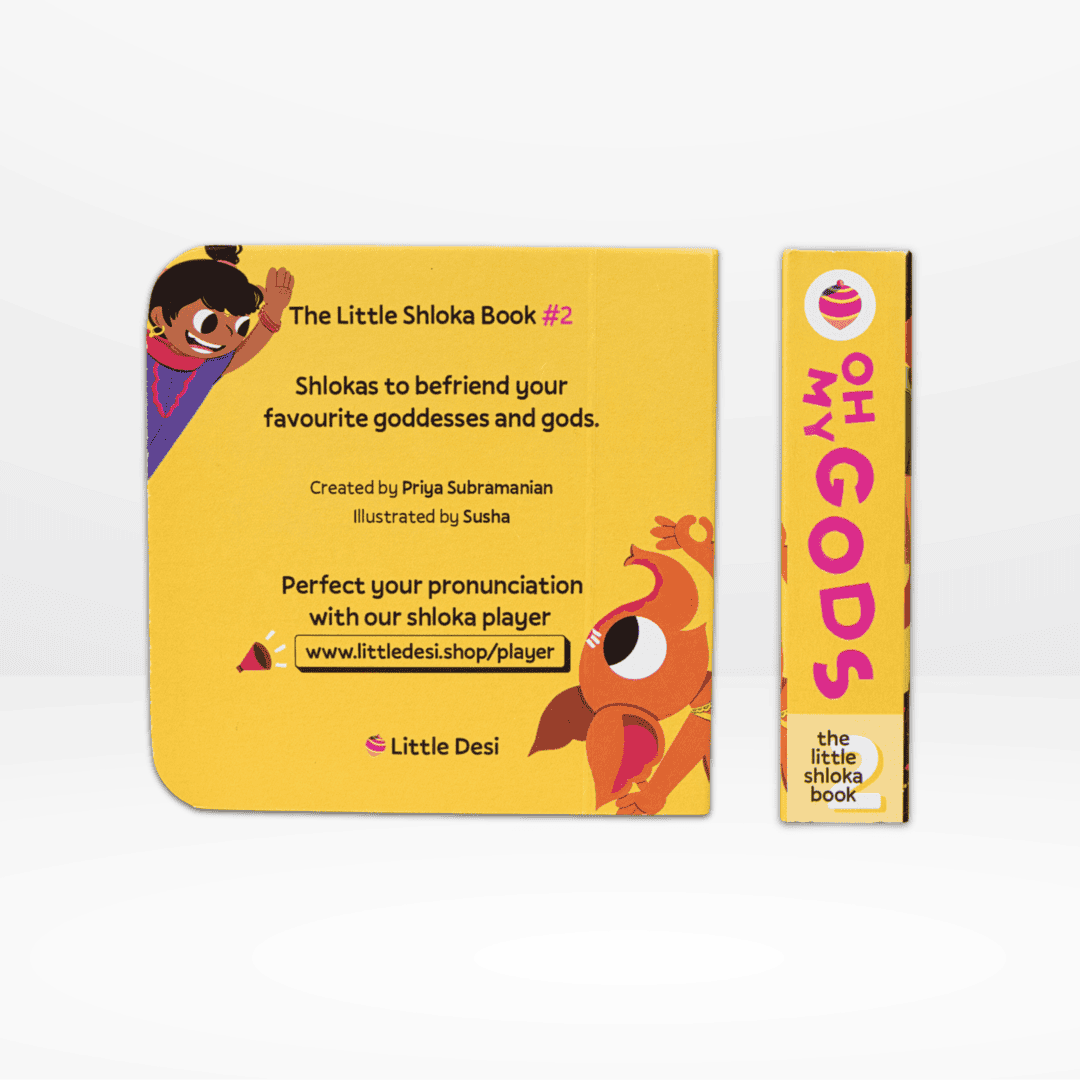
Or even better, save with a bundle!
The Super Set: One Fine Day + Oh My Gods
+ Shlokas Made Fun ™ course
(This is our most popular bundle.)
The complete package at a super special price!

The Grand Gift: Any 6 or more books of your choice
+ get the course FREE
(You save the most with this bundle.)
The ideal choice if you want to share the love.
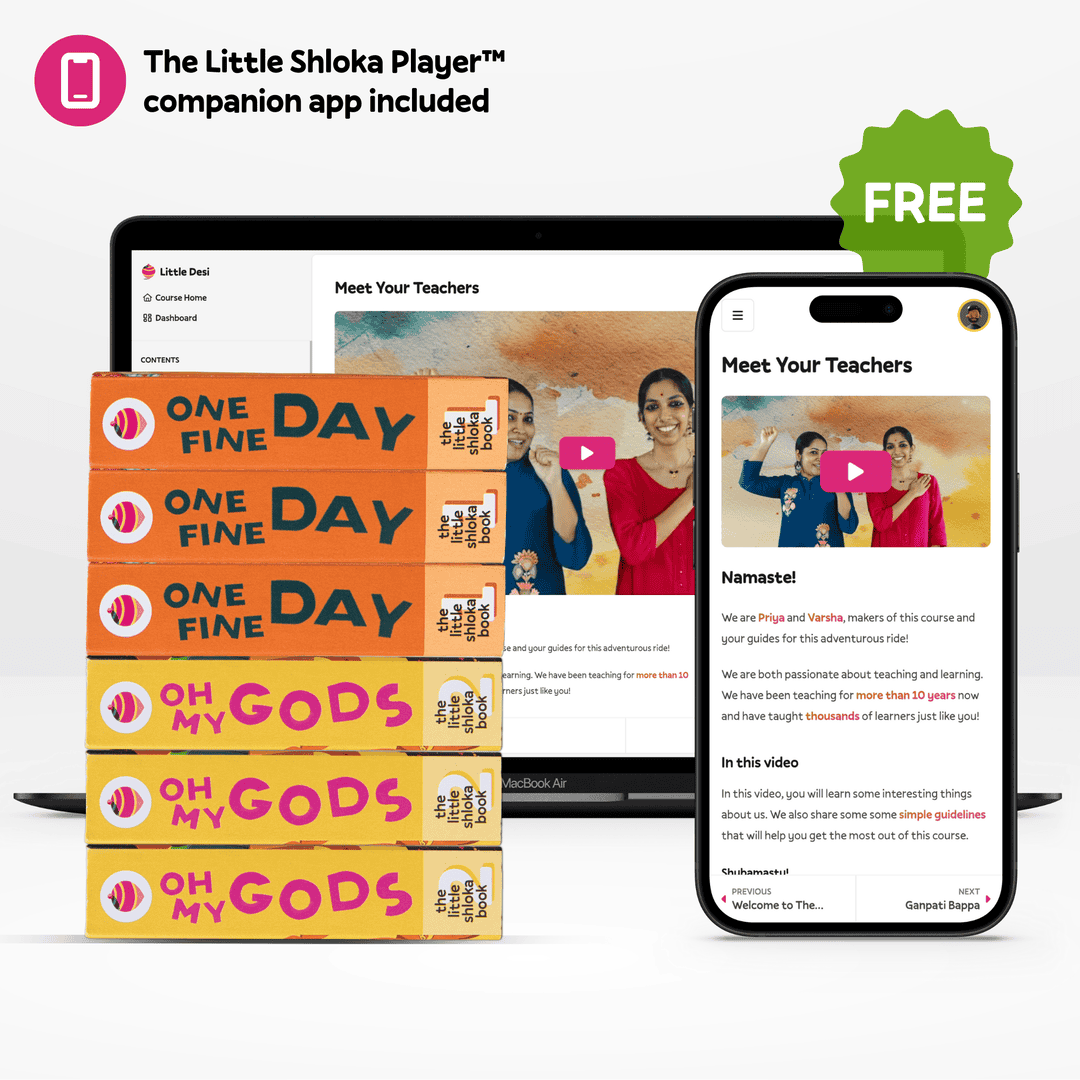
Kids and their parents love the books!

Priceless!
By now Rukmini knows most of these shlokas by heart. The other day she surprised some guests when she insisted everyone should recite “Brahmaarpanam…” before we start eating. Priceless!
Bangalore

His favourite books right now!
Reciting out shlokas to Dhruva from these books has become sort of a daily ritual. Watching his gaze move from picture to picture as he listens on with rapt attention is the best! His favorite books right now!
Bangalore
The Little Desi Team
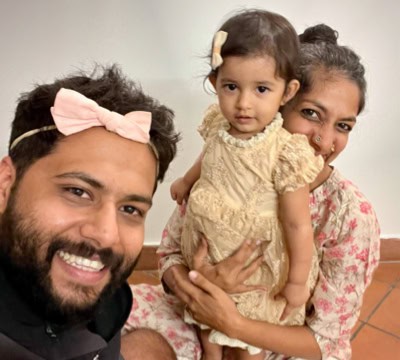
We are Priya and Aseem, amma and appa to Devi, and founders of Little Desi, where we try to make Indian culture fun and inspiring for today's kids.
Priya dances Bharatnatyam and previously served as the creative lead of a performing arts institute in Mumbai. She has travelled extensively across India taking yoga and meditation for thousands of preschoolers, students, and working professionals.
Aseem lifts, swims, and makes web things. He has worked in companies big and small as an engineer. He loves designing digital experiences.
And, Devi, among other things, orders her amma and appa around till they bend to her whims, while throwing in a smile or two every now and then.
We're flattered!
“Imitation is the sincerest form of flattery” said Oscar Wilde.
We'd just like to say that when you buy The Little Shloka Book ™ from this website, you're buying the original, not a knockoff from one of our many admirers.
Thank you for supporting the original! You're awesome!
